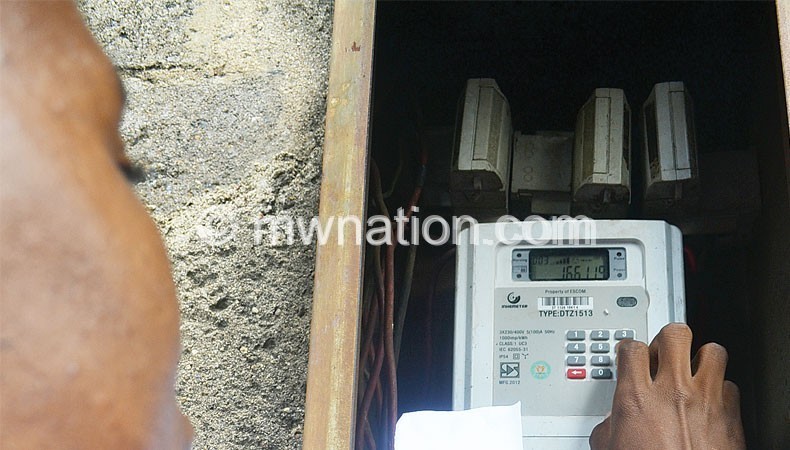ELECTRICITY TARIFF RISE TO PUSH UP INFLATION

Investment advisory firm Nico Asset Managers Limited has said the recent increase in electricity tariffs will put more pressure on the general prices of goods and services and the cost of living, resulting in cost push inflation.
The firm’s March 2014 economic report indicates that the recent increase in fuel and utility prices will put pressure on inflation, the general rise in the prices of goods and services.
Housing water and electricity account for about 14.7 percent of Malawi’s inflation measure the Consumer Price Index (CPI) while food and non- alcoholic drinks account for the largest part at 50.2 percent, according to the national Statistics Office (NSO).
The Nico Asset Managers report, however, says that election related spending means that inflationary pressures will still persist in the short-term.
A fortnight ago, the Malawi Energy Regulatory Authority (Mera) approved a 37.28 percent average tariff increase to be implemented in phases over a four-year period, starting from April 4 2014.
According to Mera, electricity tariff will change from K31.54 per kilowatt hour to K43.24 per kilowatt hour over the period.
According to the energy regulator, the first increase of 13.5 percent was effected on April 4 this year, 18.18 percent next year, 8.9 percent in 2016 and 1.9 percent in 2017.
But regardless of the effects of the tariff raise, Consumers Association of Malawi (Cama) executive director John Kapito last week welcomed the raise, arguing that consumers will be able to hold Escom accountable.
Mera indicated that the tariff increase requested by Escom is aimed at improving its financial position to enhance capacity and capability for better service delivery to existing customers and also increase access to electricity services.
However, the electricity tariff rise threatens to put pressure on inflation.
The Nico Asset Managers report, however, notes that the inflationary pressures may be eased by maize prices which are expected to go down as the harvest season has began and maize becomes readily available.
Inflation eased by 1.3 percentage points to 24.6 percent in February largely due to falling maize prices.
The Economist Intelligence Unit (EIU) expects average inflation to fall to 19.6 percent in 2014 compared to 28.6 percent in 2013 as a result of falling global food prices and aid-funded subsidies for poor households.
The International Monetary Fund (IMF) expects end-2014 inflation to drop to 9.7 percent from 23.5 percent in December 2013 while the annual average is projected to drop to 15.1 percent.






It is unfortunate that electricity tarriffs have to go up